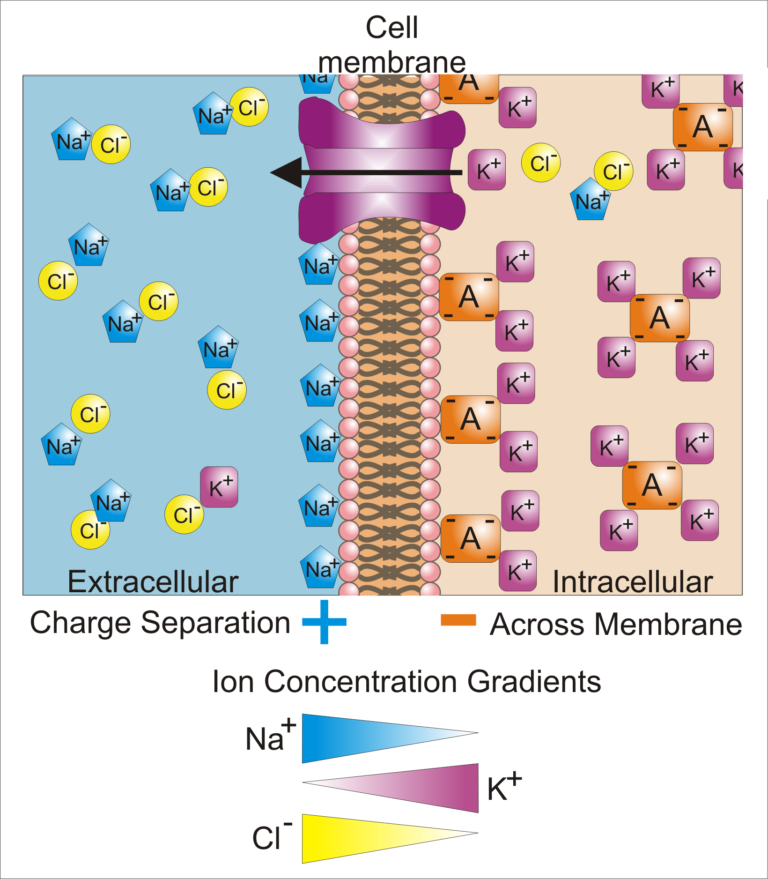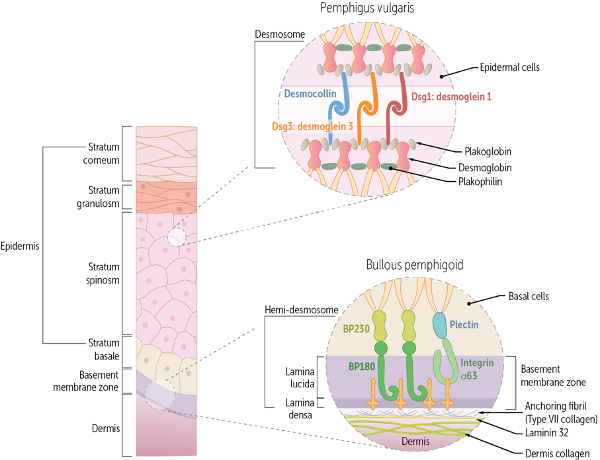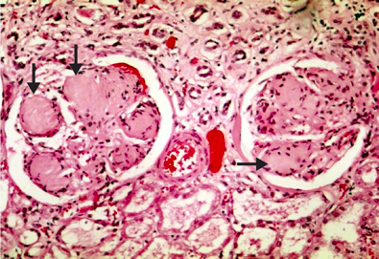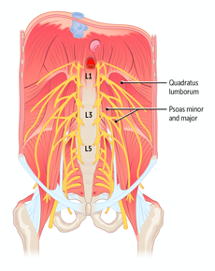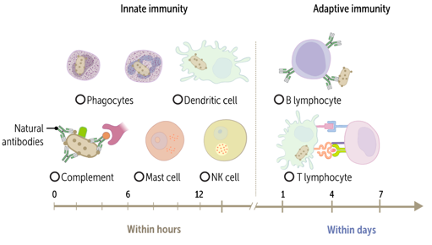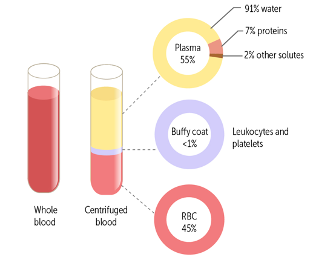Posts Tagged ‘Rx Bricks’
Cell Membrane Potential and Ion Balance

Differences in ion concentrations inside and outside a cell cause a difference in the charge of the intracellular and extracellular environments. This electrical polarization of a cell relative to its environment is referred to as cellular membrane potential. This potential serves as an energy source for a variety of cellular functions and as a way…
Read MoreBullous Skin Disorders

What are bullous skin disorders? Bullae are fluid-filled blisters >1 cm in diameter. They can be caused by infection, mechanical stress, or a malfunctioning immune system. In this discussion, we tackle the latter, focusing on the most common autoimmune bullous (blistering) disorders: pemphigus vulgaris, bullous pemphigoid, and dermatitis herpetiformis. Distinctly, the blisters in each of…
Read MoreDiabetic Nephropathy

A macrovascular complication of diabetes, diabetic nephropathy is progressive, chronic kidney disease seen in patients with both type 1 and type 2 diabetes mellitus, usually after at least 10 years of hyperglycemia (high blood glucose levels). The three main lesions that are seen in the kidney in patients with diabetes are glomerular lesions, vascular lesions,…
Read MoreAnatomy of the Posterior Abdominal Wall

It might not be the flashiest anatomical structure, but if you want to stand upright, and keep your retroperitoneal organs (like your kidneys) in place, the posterior abdominal wall is pretty important. Located at the back of the body, bounded by the lateral abdominal walls and the posterior parietal peritoneum, the posterior abdominal wall is…
Read MoreHistology of Epithelial Tissue

Epithelium is one of the four basic tissue types (the other three are muscle tissue, nerve tissue, and connective tissue). It is found throughout the body—covering it; lining organs, vessels, and cavities; and forming glands. It absorbs nutrients, transports electrolytes, secretes hormones, and regulates body temperature by producing sweat. We begin with some general principles…
Read MoreProkaryote Structure and the Gram Stain

What do you know about prokaryote structure and the gram stain? Bacteria are members of a unique taxonomic kingdom consisting of prokaryotic unicellular organisms. Prokaryote is a term from ancient Greek meaning “before the kernel.” The kernel in this case is a nucleus, which prokaryotes lack. Prokaryotes also do not have any membrane-bound organelles. In…
Read MoreIntroduction to Global Health

What Is Global Health? In our increasingly interconnected world, health challenges transcend national boundaries and demand global solutions. Global health is an interdisciplinary field of study and practice that seeks to improve the health and well-being of populations worldwide, focusing on the health challenges that require global and national action in every country. It encompasses…
Read MoreImmunology: Foundations and Frameworks

How do we survive in a complex environment filled with harmful organisms that thrive on colonizing us? Our heroic defender is the immune system, a network of organs and cell lines that exist with the mission of protecting the body from harm. While we often recognize the pathogen-fighting capabilities of the system, we can sometimes…
Read MoreGluconeogenesis

In the fed state, glucose is used by almost all the cells in the body to generate energy. But even when we are not fueling it with food, our bodies still run well, such as during sleep. Gluconeogenesis is the process of synthesizing glucose from noncarbohydrate precursors. The major substrates (substances that enzymes act on)…
Read MorePlasma Composition

When you hear the word blood, what do you picture in your mind? Most likely, your brain conjures up an image of thick, red liquid. But what would blood look like if you removed all the red cells? You’d be left with a murky yellowish liquid that would clear up once you removed the white…
Read More
